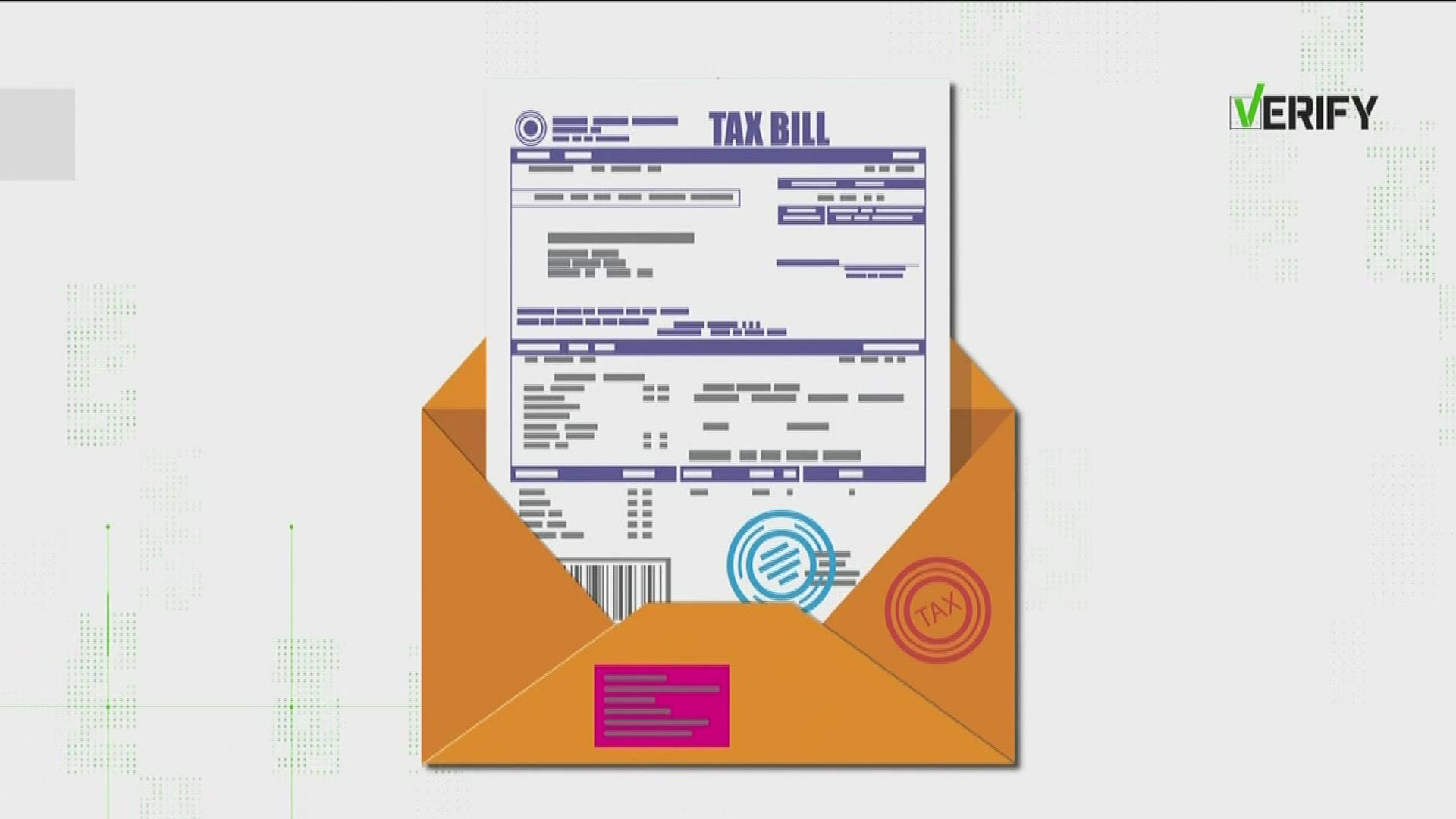ATLANTA — Tax season is here, and that means scammers are on the prowl trying to intercept your personal and financial information.
Viral posts now warn of a scam letter impersonating the IRS.
The graphic that's being shared across Facebook and Twitter, shares a warning: "now the scammers are sending out scam letters" with advice to call police if you receive such a letter. Since the IRS primarily makes contact through regular mail, it's understandable a scam letter is of concern.
The 11Alive Verify team took a closer look at the viral graphic, using reverse image search tool TinEye and traced the image back to Iowa State University.
The original story was posted by the university's Center for Agricultural Law and Taxation in 2016, as part of a warning to watch out for fraudulent CP 2000 notices: "The fraudulent letter has a disturbing ring of authenticity sufficient to fool an unwary taxpayer or even preparer."
While the letter indeed is fraudulent, the claim circulating social media warning this letter is a new scam is false. The original image has popped up repeatedly in recent years to show tax payers how to spot a scam.
While we verified the viral image isn't new, it is a reminder to be alert as a spokesperson with the IRS Atlanta field office verified the agency is aware of numerous scam letters circulating.
“The IRS is aware of numerous scam letters being circulated to taxpayers stating they are from the IRS. Taxpayers can confirm if the letters are legitimate by contacting the IRS at (800) 829-1040, and should report IRS Impersonation Schemes to the Treasury Inspector General for Tax Administration at www.treas.gov/tigta,” said Acting Special Agent in Charge Andrew Thornton, Jr., Atlanta Field Office, IRS-Criminal Investigation.
Financial expert Jini Thornton explained to 11Alive when taxpayers should be wary.
"Obvious things to look for anytime you're getting notices from the IRS," Thornton said. "Payment should only be payable to the United States Treasury. Not to any other entity, not even to the IRS."
"Secondly, all notices should include an -800 number. I strongly suggest you Google that number. I Googled a -877 number... and it was actually associated with scammers," she explained.
Taxpayers an also contact the IRS directly to confirm a form is legitimate. By searching forms online, the agency said you can verify the form is identical to what you've received.
"A great resource is IRS.gov," Thornoton said. "You can set your account up and check outstanding balances."
As a reminder, the IRS never initiates contact with taxpayers via email, text or social media to request personal or financial info.
“We also want the public to be aware of other common tax schemes such as elder abuse scams, phishing and phone scams, identity theft, as well as schemes promoted by unscrupulous return preparers. The individuals who perpetuate these schemes demonstrate a blatant disregard for the integrity of the United States tax system and cause immeasurable hardship to innocent victims," Thornton, Jr. said. "IRS-CI will continue to be relentless in our mission to dismantle these types of illicit scams and bring the criminals responsible for them to justice. Taxpayers are encouraged to report elder abuse scams, identity theft, unscrupulous return preparers, data breaches and cybercrimes to The Atlanta Field Office of IRS Criminal Investigations at AtlantaFieldOffice@ci.irs.gov.”



